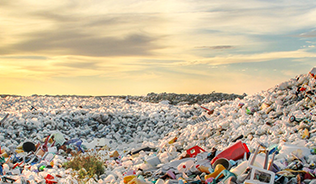Students in the Higher Education (HE) Sector are having a rough time. Covid-19 has meant that programme delivery has shifted to a mixture of on-campus face-to-face and online, in-person contact time has been reduced and placements are much harder to find.
We have a duty to ensure that students in our sector graduate with the right skills, knowledge and experience. There are opportunities for professional environmental scientists to step in during these challenging times and fill the gaps created by the lack of placement opportunities. Your involvement will not only help the next generation of environmental scientists, but you will also benefit from additional scientific input and fresh ideas into your projects. You may even learn some new skills along the way and build links with your local higher education provider.
We are issuing a call to our members to help the HE sector in the following three ways:
1. Volunteer a live project
Live projects are an opportunity for an organisation to put forward an idea, large or small, that a group of students can work on together. The cohort of students (who can be undergraduates or postgraduates) provide additional analysis and new ideas for the project. The project can come from the private sector, local government, NGOs or local community groups.
The proposer acts as a client, providing a simple brief outlining the project and the questions you want answered. This brief is developed in conjunction with the tutor. In most cases the client likes to present the brief to the students so they can answer any initial points of clarification. The students then go away and work on the brief, with the support of their tutor. At the end of the project, the students would present their ideas to the client who then provides practitioner feedback, giving the students a real-life experience. In some cases the client can be involved in the marking and feedback too. The project length could be anything, ranging from a month long to a whole academic year.
In the past, the IES office has used this approach with MBA students from the London Business School and we found it to be an extremely valuable process, with the results and impact heavily outweighing the resources required to package and present the live project.
If you are interested, please get in touch with Rhiannon Humphreys and we will broker the relationship with your local IES-accredited environmental programme.
2. Join an accreditation review panel
The IES is expanding its accreditation programme to cover specialist Masters programmes in areas that align with our communities. As the world’s leading accreditation body of environmental programmes, we are constantly seeking to add additional benefits and rigour to our accreditation programme. We have identified the need for greater practitioner involvement in our accreditation process.
We are looking for practitioners in the areas of land condition and marine science who would be willing to sit on an accreditation panel to provide input and feedback to enhance our accredited programmes in those areas.
If you are interested, please contact Rhiannon Humphreys for an initial conversation.
3. Create online work experience opportunities
As employers have moved to remote working, they have been unable to offer the usual onsite work experience for students. Some have already chosen to move to a virtual offer and, to overcome the shortfall in placement and work experience opportunities, we would like to encourage more employers to offer virtual work experience placements. Universities have a plethora of resources to help you develop a meaningful and impactful work experience opportunity.
If you think you have an opportunity, get in touch with us and we will put you in contact with a IES-accredited environmental programme who may be interested in working with you.



